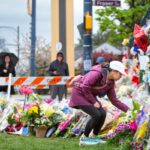I stood at the entrance of the red-brick building that once housed Williams Lake’s detox center, watching as a worker carried out the last box of supplies. The seven-bed facility that had been a lifeline for so many in the Cariboo-Chilcotin region now sat empty, its windows reflecting the gray October sky.
“We just couldn’t find the people,” sighed Maria Santos, a registered nurse who worked at the center for four years before its closure. “Every day was a scramble to cover shifts. Eventually, you hit a breaking point.”
The recent closure of Williams Lake’s detox center due to critical staff shortages has left a significant gap in substance use services for the region’s residents. Interior Health confirmed the facility’s indefinite closure earlier this month, citing the inability to maintain adequate staffing levels required for safe operation.
For communities already grappling with the dual crises of addiction and limited healthcare access, the loss of this essential service represents more than just a shuttered building. It embodies a broader healthcare staffing crisis playing out across rural British Columbia.
“This detox center was often the first step for people ready to make a change,” explains Dr. James Williams, an addiction medicine specialist with the First Nations Health Authority. “Without that immediate access, we risk losing that critical window when someone is motivated to seek help.”
The seven-bed facility provided medically supervised withdrawal management services—a crucial first step in recovery for many struggling with substance dependence. Now, residents requiring these services must travel to Kamloops or Prince George, both more than two hours away.
For Danielle Morrison, whose brother finally agreed to seek treatment last summer after years of alcohol dependency, the thought of others facing these new barriers is heartbreaking. “My brother wouldn’t have gone if he’d had to leave town,” she tells me as we sit in a local coffee shop. “That center saved his life because it was here, in our community, where he felt safe.”
Interior Health has stated they’re actively recruiting to fill the vacancies but offered no timeline for reopening. The health authority confirmed they’ve implemented interim measures, including virtual support services and expanded outreach, but community advocates argue these alternatives fall short of the comprehensive care previously available.
The healthcare staffing crisis in northern and interior communities has reached critical levels, according to a 2023 report from the Rural Evidence Review project at the University of British Columbia. The study found that nearly 40 percent of rural communities in B.C. face persistent challenges recruiting and retaining healthcare professionals, with substance use and mental health services facing the most severe shortages.
Chief Willie Sellars of the Williams Lake First Nation expressed particular concern about the impact on Indigenous community members. “Our people already face significant barriers to accessing culturally appropriate care,” he noted during a recent community meeting. “This closure widens that gap at a time when our communities are still healing from intergenerational trauma and the ongoing toxic drug supply crisis.”
The timing couldn’t be worse. According to the BC Coroners Service, the Cariboo region has seen a 34 percent increase in toxic drug deaths since 2021. Without local detox services, health officials worry this trend could accelerate.
Walking through downtown Williams Lake, evidence of the ongoing substance use crisis is visible on nearly every block. Outside the Salvation Army, I meet Jordan, who declined to share his last name. After struggling with opioid use for nearly a decade, he had been on a waitlist for the detox center when it closed.
“I was finally ready,” he says, pulling his jacket tighter against the autumn chill. “Now I’m told I need to somehow get to Kamloops? I don’t have a car. I don’t have money for a bus. So I guess I just keep using until something changes.”
Local physicians have been scrambling to fill the gap. Dr. Naomi Collins, who operates a family practice in Williams Lake, has started offering limited outpatient withdrawal management, but acknowledges this is far from ideal. “We’re doing what we can, but we don’t have the resources or staffing to provide 24-hour monitoring. For many substances, withdrawal can be dangerous or even life-threatening without proper supervision.”
The staffing challenges facing the detox center reflect broader healthcare recruitment issues in rural communities. Interior Health has increased signing bonuses and relocation packages for rural positions, but competition for healthcare workers has intensified across the province.
“We’re competing with urban centers that can offer higher pay, better amenities, and more manageable workloads,” explains City Councillor Scott Nelson, who chairs Williams Lake’s Healthcare Advocacy Committee. “We need to think creatively about how we attract and retain healthcare workers in our community.”
Some of those creative solutions may come from within the community itself. Williams Lake First Nation and neighboring Secwépemc communities have initiated discussions about a potential partnership with Interior Health to develop an Indigenous-led recovery program that could incorporate traditional healing practices alongside western medical approaches.
“Our communities have healing knowledge that has supported people for thousands of years,” says Elder Mary Thomas, who has been involved in early planning discussions. “By bringing together different ways of knowing, we might create something more sustainable and culturally meaningful than what existed before.”
As the sun begins to set over the mountains surrounding Williams Lake, casting long shadows across the empty detox center parking lot, the building stands as a symbol of both challenge and possibility. For now, the community continues to advocate for solutions while supporting those caught in the gap created by this critical service loss.
“We can’t just accept this as the new normal,” says Santos, the nurse who worked at the center. “People’s lives depend on these services being available when they’re ready to take that first step toward recovery. Our community deserves better.”






